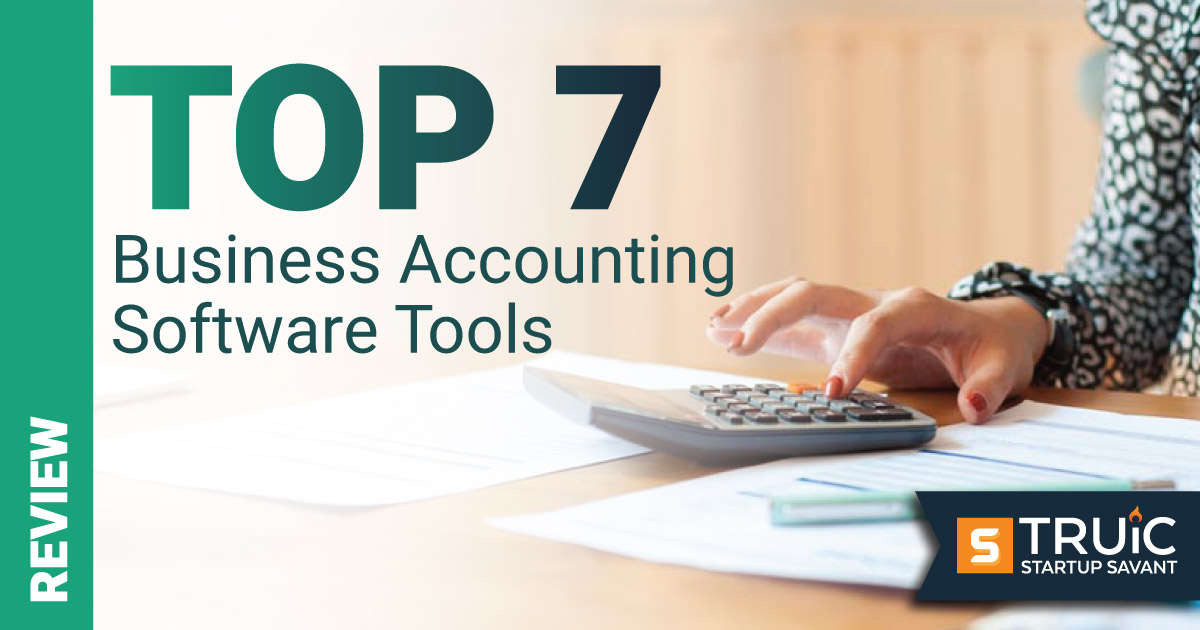Pros and Cons of Accounting Software for Startups

Last Updated: By TRUiC Team
Accounting software has changed the game in the startup landscape by offering a “digital switch” from traditional manual accounting practices.
Technology completely transforms how startups handle their accounting processes, making them automated, precise, and efficient. But just like any other technology, accounting software also comes with considerations that startups need to carefully evaluate. These include the upfront costs, learning curve, and dependency on steady internet access, especially as most of these systems are cloud based.
Startups in their beginning stages can benefit a great deal from the time savings and error reduction capabilities that accounting software provides. It allows for the automation of mundane tasks like data entry, invoicing, and even tax calculations, which frees up precious time that can be used to focus on core business activities. But even with all of these benefits, the potential initial costs and the need for training could be a deterrent for some startups who are budget conscious.
The goal of this guide is to explore both the pros and the cons of accounting software for startups, providing the details you need to make your own informed decision.
Recommended: Hiring an accountant can save your company thousands of dollars in taxes each year. Get a free tax consultation with 1-800Accountant.
Advantages and Disadvantages of Using Accounting Software
When you use accounting software in your organization, there are several benefits that extend beyond simplifying accounting tasks. It improves forecasting, increases productivity, ensures tax compliance, and even helps in the development of digital skills. The real-time financial insights provided by these systems empower businesses to make informed decisions with confidence. There's no denying the drawbacks though, including service loss or inaccurate data input due to human error, challenges with system configuration, high costs, and an increased risk of fraud.
Pros
When discussing the advantages of accounting software, we can't ignore the significant efficiency and accuracy it offers. Automation minimizes the likelihood of errors commonly linked with manual records, providing time savings by handling repetitive tasks such as invoicing and payroll calculations.
Plus, accounting software can offer important insights into financial dynamics in real time, enabling informed decision making. Let’s dive into the pros in greater detail.
Efficiency and Accuracy
Accounting software can automate a large number of financial tasks and reduce the likelihood of errors commonly associated with manual record keeping. This automation is essential for producing more accurate results in financial reports and analytics, and it also takes the pressure off of staff who no longer need to execute complex calculations manually. With the automated system taking care of these tasks, the risk of inaccuracies which can have severe financial implications is significantly reduced.
Significant Time Savings
Businesses can save a considerable amount of time by automating repetitive tasks such as data entry, invoicing, tax calculations, and payroll management. Accounting software handles these routine tasks freeing up staff to focus on other aspects of business management. This means that accountants can concentrate their efforts on interpreting results and providing strategic advice, which adds more value to the business.
Access to Financial Insights
Accounting software systems offer real time financial reporting and analytics, empowering entrepreneurs to make important decisions with the right information in hand. Immediate access to current and updated financial data allows managers to track fiscal performance continually and adjust business tactics when necessary. This proactive approach helps in spotting potential issues before they escalate, ensuring better financial control.
Scalability
As businesses grow, they can upgrade their accounting software plans and introduce new features as required. The flexible nature of digital accounting systems allows them to accommodate increased transaction volumes and the changing needs of a growing organization. This adaptability eliminates the need to switch systems or incur heavy customization costs as the startup expands.
Integration
Accounting software can integrate seamlessly with other business systems and help provide efficient workflows. A well-integrated software system can streamline data flow between different departments, reducing data duplicity and enhancing overall operational effectiveness. This interplay can lead to better collaboration and communication between departments, promoting an environment of unified goals and transparency.
Compliance
Accounting software ensures that startups stay compliant with tax laws and regulations. Automated software can manage tax calculations and reporting in accordance with current legal guidelines, eliminating chances of noncompliance in the process. This feature is especially beneficial as tax laws can change and become increasingly complex, posing a challenge for businesses to stay updated and compliant. By using accounting software, a business no longer has to worry about incorrect, inaccurate, or out-of-date tax and compliance advice. Since accounting software tools are frequently updated with all of the latest policy and compliance changes, it makes the process simple.
Digital Skills Enhancement
Using accounting software lets users improve their digital skills by completing accounting tasks with little to no specialized training, since guidelines and compliance rules are now built into the software at a greater level. The use of software can lead to a better understanding of how technology impacts business processes which in turn results in more informed and strategic decisions. Making business decisions based on the best information possible is critical, and if this can be implemented company wide through modern software and technology, it’s a leap well worth taking.
Cons
While there are significant benefits to using accounting software, there are also some substantial pitfalls that businesses must bear in mind. The upfront costs can be steep compared to manual systems, and additional setup and training can further increase these expenses. A reliance on consistent internet access and increased data security concerns due to electronic storage of financial information are other challenges that need sufficient attention when moving toward accounting software. Let’s look at the cons more in depth.
High Upfront Costs
High upfront costs are a significant drawback when it comes to implementing accounting software. In addition to the purchasing price of the software, startups might have to allocate funds for installation, customization and potentially even hardware upgrades. Since most software providers charge on a subscription basis there's also a recurring cost to consider, which can make accounting software quite an investment particularly for small businesses and startups.
Additional Costs for Setup and Training
Adopting accounting software often comes with additional costs for setup and training. Staff may need guidance to understand and navigate the new system effectively, which implies an investment in professional training. We also can’t forget that setting up the software to match the startup’s specific needs can require expert assistance, incurring an extra cost.
Dependence on Internet Access
Dependence on consistent internet access is another potential pitfall of accounting software especially for businesses located in regions with unstable or slow internet connection. Since most modern accounting programs are cloud-based, a reliable internet connection is required for accessing financial data and performing tasks. In cases of internet downtime, business operations could face significant disruption.
Security Concerns
Security concerns are also amplified with the usage of accounting software. Storing sensitive financial information electronically increases the risk of data breaches and fraud if proper security protocols aren't in place. It's important that businesses make sure their chosen software has robust and reliable security measures and complies with data protection regulations to safeguard against potential threats.
Learning Curve
The learning curve associated with accounting software can pose a challenge particularly for those used to manual bookkeeping methods. It requires users to familiarize themselves with new processes, digital interfaces, and features, which could initially be time consuming and overwhelming. Startups must balance the immediate need for training and potential productivity dips with the long-term benefits of increased efficiency and accuracy offered by accounting software.
How to Choose the Right Accounting Software for Your Startup
Choosing the right accounting software tools for your startup requires a careful evaluation of both the benefits and potential drawbacks. The advantages are many: enhanced efficiency and accuracy, significant time savings through automation of repetitive tasks, and valuable financial insights, to name a few. However, you also need to consider the high upfront costs, the learning curve and potential security concerns.
But don’t let the cons deter you. With careful planning and a thorough analysis of your startup's specific needs, you can minimize these potential hurdles. For instance, if budget constraints are an issue, consider accounting software with flexible pricing options or even free versions for startups. If your team lacks the necessary digital skills, then look for providers that offer comprehensive training and support.
Here are some key considerations when choosing the right accounting software for your startup:
- Budget: Evaluate the financial commitment involved by considering both initial setup costs as well as any ongoing fees for maintenance or upgrades.
- Features: Make sure the software offers core accounting features such as accounts payable/receivable, financial reporting, and payroll processing. As your business grows you might also need additional features like inventory management and budget forecasting.
- Usability: The software should be user-friendly with a reasonable learning curve. After all, you don’t want to spend unnecessary time on a complex system when you should be focusing on growing your startup.
- Integration Capabilities: The software should be able to seamlessly integrate with other business systems you already use. This connectivity will foster efficient workflows and eliminate redundant tasks.
- Security Measures: Given that you are dealing with sensitive financial data, it's very important to choose software with robust security features.
While the process of switching to accounting software from manual methods might seem daunting when you first start, the long-term benefits far outweigh the initial time and money invested.
After all, well-organized financial management is one of the biggest keys to the success of any startup. Make an informed decision, and watch your business thrive!


